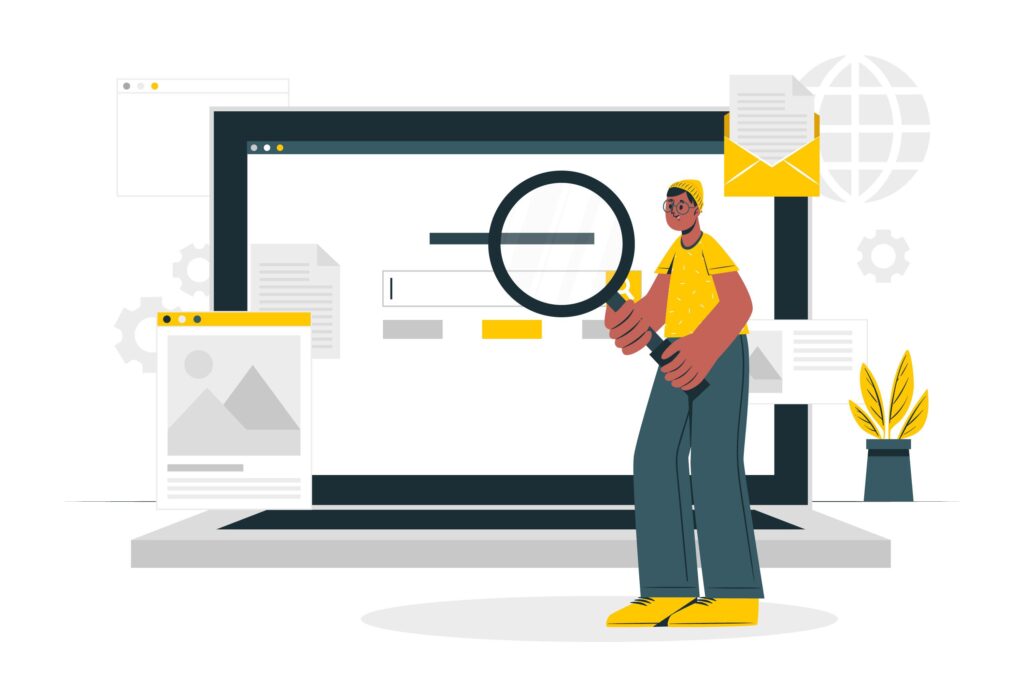Artificial Intelligence (AI) is reshaping nearly every industry, but its impact on healthcare is nothing short of revolutionary. What once required manual labor, guesswork, or time-consuming analysis can now be supported—or in some cases, autonomously executed—by intelligent systems. As global health demands grow, AI provides the efficiency, accuracy, and predictive intelligence needed to modernize care delivery.
From diagnostics to drug discovery, operational efficiency to personalized treatments, AI is unlocking possibilities that were unimaginable a decade ago. Below is an in-depth exploration of the key benefits of AI in healthcare, backed by real-world applications and future potential.
1. Faster and More Accurate Diagnostics
One of the most talked-about contributions of AI in healthcare is its ability to analyze medical data faster and often more accurately than humans.
AI Enhances Medical Imaging
Technologies like deep learning can detect abnormalities in:
- X-rays
- MRIs
- CT scans
- Ultrasound images
AI systems can identify tumors, fractures, lesions, and organ anomalies with precision levels that rival or exceed trained radiologists.
Early Detection Saves Lives
AI-powered diagnostic tools can spot diseases at early stages—for example:
- Lung cancer markers
- Diabetic retinopathy
- Skin melanoma
- Heart arrhythmias
Earlier detection reduces treatment costs and significantly improves patient outcomes.
Personalized Treatment Plans
Every patient is unique, and AI is helping medical professionals deliver care tailored to individual needs.
Data-Driven Personalization
AI can analyze:
- Genetic data
- Lifestyle patterns
- Past medical history
- Biomarker responses
…and use this information to suggest highly personalized treatment options.
Precision Medicine
AI algorithms help doctors understand:
- Which therapy will work best
- What dosage is optimal
- How a patient may respond before treatment even begins
This reduces trial-and-error and increases treatment effectiveness.
3. Improved Operational Efficiency in Hospitals
Healthcare systems are often overwhelmed with administrative and operational challenges. AI helps streamline these processes.
Administrative Automation
AI handles:
- Appointment scheduling
- Billing & insurance claims
- Patient record management
- Documentation
This reduces paperwork and frees up medical staff to focus more on patient care rather than administrative burdens.
Predictive Staffing
AI forecasting tools predict patient inflow, helping hospitals manage staff availability and avoid overcrowding or delays.
4. Enhancing Patient Care Through Virtual Assistants
AI-powered virtual assistants and chatbots are becoming essential components of modern healthcare.
24/7 Medical Help
AI chatbots assist with:
- Symptom checking
- Appointment reminders
- Medication instructions
Remote Monitoring Support
AI-driven devices track vital signs such as:
- Blood pressure
- Heart rate
- Glucose levels
They alert caregivers instantly if anomalies are detected, enabling rapid intervention.
Revolutionizing Drug Discovery and Development
Developing new drugs has traditionally been a lengthy and expensive process. AI dramatically accelerates this timeline.
Faster Drug Research
AI models analyze chemical structures, predict compound effectiveness, and simulate reactions—reducing years of trial-and-error.
Cost Reduction
By predicting outcomes early, companies avoid investing in compounds unlikely to succeed.
AI Played a Role in COVID-19 Vaccines
During the pandemic, AI helped researchers:
- Model protein structures
- Accelerate molecule analysis
- Optimize vaccine formulations
This significantly shortened development timelines.
6. Better Decision-Making for Doctors
Clinicians make life-altering decisions daily. AI provides the data intelligence needed to make these decisions more informed and accurate.
Clinical Decision Support Systems (CDSS)
AI analyzes patient data to suggest:
- Possible diagnoses
- Treatment protocols
- Risk assessments
This empowers doctors with real-time insights and reduces human error.
Predictive Analytics
AI can predict patient risks such as:
- Chances of cardiac arrest
- Risk of infections
- Probability of hospital readmission
This helps hospitals prepare interventions earlier.
Enhancing Remote & Telehealth Services
With telemedicine rising globally, AI plays a critical role in remote care delivery.
AI for Remote Diagnostics
Machine learning algorithms evaluate patients’ submitted symptoms and images remotely.
Wearable Technology
Smart devices track real-time health metrics and sync them with telehealth systems for continuous monitoring.
Accessible Healthcare
AI makes healthcare more accessible for:
- Rural populations
- Elderly individuals
- Patients with mobility limitations
AI bridges the gap where physical healthcare resources are limited.
8. Reducing Human Errors
Medical errors are a leading cause of avoidable harm. AI significantly minimizes these risks.
Error-Free Data Processing
Unlike humans, AI does not get fatigued or distracted, making:
- Lab result analysis
- Medication dosage calculations
- Chart reviews
…highly accurate.
AI Alerts & Reminders
Systems notify clinicians about:
- Drug interaction risks
- Treatment inconsistencies
- Missing patient data
These prompts reduce the likelihood of oversight.
9. Strengthening Public Health & Epidemiology
AI plays a significant role in understanding and controlling public health trends.
Predicting Disease Outbreaks
AI models analyze global data to foresee outbreaks like:
- Influenza
- Dengue
- COVID-like diseases
Tracking Virus Mutations
AI tools also analyze genomic data to predict how viruses may evolve.
10. Enhancing Mental Health Support
AI supports psychiatric care through:
- Mood-tracking apps
- Conversational AI for emotional support
- Early detection of mental health concerns through language analysis
While not a replacement for therapists, AI provides scalable support systems.
The Future of AI in Healthcare
AI in healthcare is still evolving, but its future is promising. Upcoming breakthroughs include:
Fully AI-assisted surgeries
Autonomous lab testing
AI-driven robotic caregivers
Real-time genomic treatment adjustments
Predictive public health systems
The integration of AI into healthcare marks the beginning of a more efficient, accurate, and personalized medical future.
Conclusion
AI is transforming the healthcare industry by improving diagnostic accuracy, accelerating drug discovery, reducing operational burdens, personalizing treatments, and enhancing overall patient care. As technology continues to evolve, healthcare providers and organizations that embrace AI will be better positioned to deliver superior outcomes, reduce costs, and operate more efficiently.
AI is rapidly transforming the healthcare industry by improving accuracy, accelerating diagnostics, personalizing treatment, and streamlining operations. As hospitals and health brands continue to embrace digital transformation, the need for strong online visibility is more crucial than ever.
At Wildnet Technologies, we support this growth through specialized Healthcare SEO Services that help medical organizations reach the right patients, rank for competitive healthcare keywords, and stay ahead in an AI-driven landscape.
By combining healthcare expertise with advanced SEO strategy, we empower providers to build trust, drive traffic, and increase patient engagement. The future of healthcare is digital—and optimizing for it starts now.
FAQs
Ques 1. How is AI used in healthcare today?
Ans. AI is used in medical imaging, diagnostics, virtual assistants, drug discovery, hospital automation, predictive analytics, and personalized treatment planning. It enhances accuracy, reduces errors, and speeds up clinical decision-making.
Ques 2. What are the most significant benefits of AI in healthcare?
Ans. AI improves diagnostic accuracy, accelerates drug development, enhances operational efficiency, reduces human error, supports remote monitoring, and enables data-driven personalized care.
Ques 3. Can AI replace doctors in the future?
Ans. AI will not replace doctors but will augment their capabilities. It automates repetitive tasks, analyzes large datasets instantly, and provides decision support, allowing healthcare professionals to focus more on complex care and human interactions.
Ques 4. Is AI safe to use in medical diagnosis?
Ans. Yes, when properly trained and validated, AI systems can be highly accurate. They are used as supportive tools alongside physician judgment, helping reduce oversight and improve early disease detection.
Ques 5. How does AI improve patient experience?
Ans. AI improves the patient experience by enabling faster diagnosis, 24/7 virtual assistance, personalized treatment recommendations, reduced wait times, better wearables-based monitoring, and more efficient healthcare workflows.
Read More
- How We Ranked a Healthcare website on Google Search for local Keywords? | Healthcare Sector SEO Case Study
- AI in Healthcare: Wildnet’s Software Solutions Transforming Lives
- Local SEO for Hospitals Increases Walk-in Patients & Appointment Bookings | Healthcare Case Study
- Driving Digital Transformation for a Leading Healthcare Provider
- Cloud-Based Healthcare Management System Delivers Hospital Workflow Optimization







